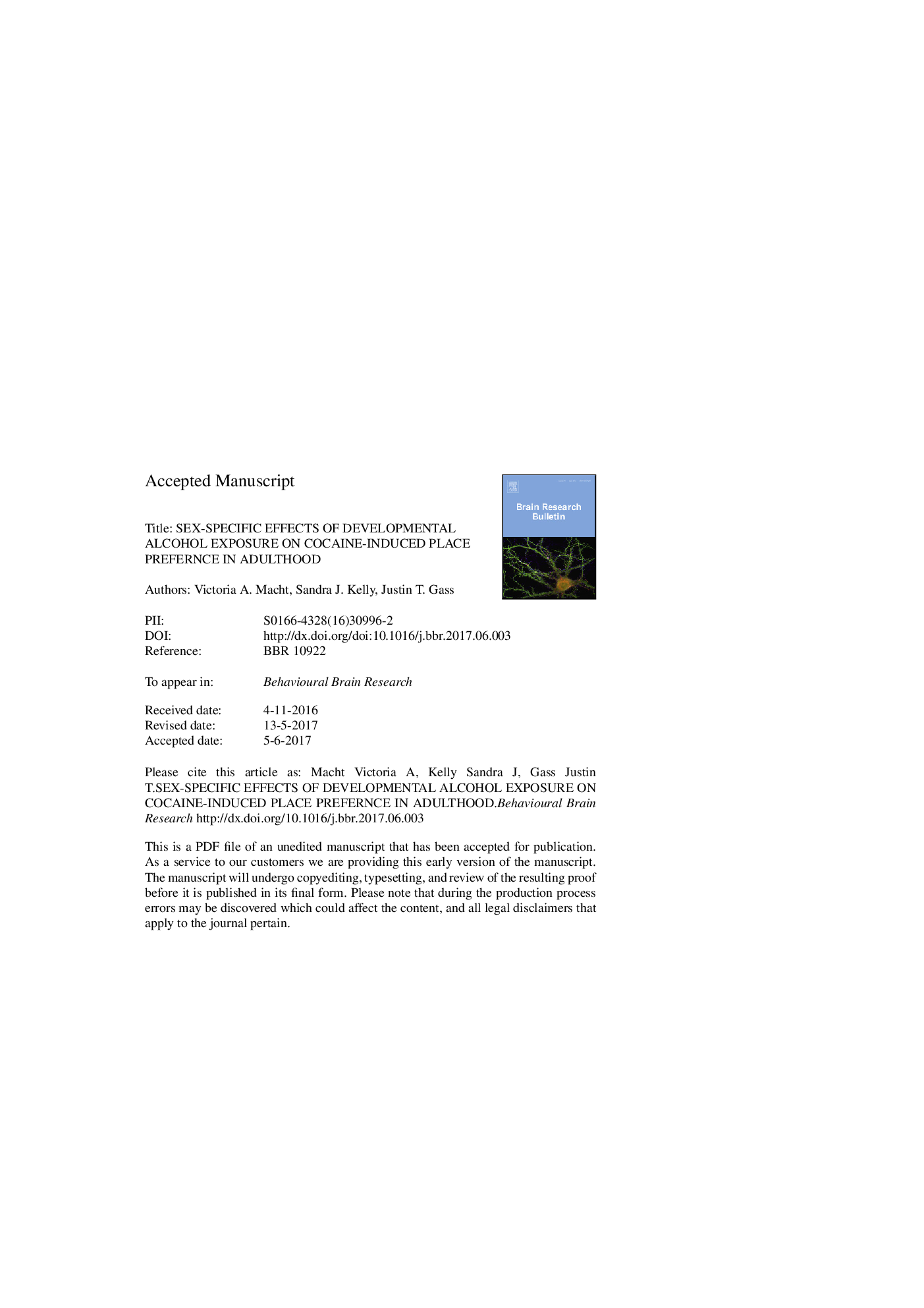| کد مقاله | کد نشریه | سال انتشار | مقاله انگلیسی | نسخه تمام متن |
|---|---|---|---|---|
| 5735122 | 1612903 | 2017 | 41 صفحه PDF | دانلود رایگان |
عنوان انگلیسی مقاله ISI
Sex-specific effects of developmental alcohol exposure on cocaine-induced place preference in adulthood
ترجمه فارسی عنوان
اثرات متفاوتی از تاثیرات جنسیتی در معرض قرار گرفتن در معرض الکل از نظر کوکائین در اولویت قرار گرفتن در بزرگسالی
دانلود مقاله + سفارش ترجمه
دانلود مقاله ISI انگلیسی
رایگان برای ایرانیان
کلمات کلیدی
موضوعات مرتبط
علوم زیستی و بیوفناوری
علم عصب شناسی
علوم اعصاب رفتاری
چکیده انگلیسی
Fetal Alcohol Syndrome (FAS) is associated with high rates of drug addiction in adulthood. One possible basis for increased drug use in this population is altered sensitivity to drug-associated contexts. This experiment utilized a rat model of FASD to examine behavioral and neural changes in the processing of drug cues in adulthood. Alcohol was given by intragastric intubation to pregnant rats throughout gestation and to rat pups during the early postnatal period (ET group). Controls consisted of a non-treated group (NC) and a pair-fed group given the intubation procedure without alcohol (IC). On postnatal day (PD) 90, rats from all treatment groups were given saline, 0.3Â mg/kg, 3.0Â mg/kg, or 10.0Â mg/kg cocaine pairings with a specific context in the conditioned place preference (CPP) paradigm. While control animals of both sexes showed cocaine CPP at the 3.0 and 10.0Â mg/kg doses, ET females also showed cocaine CPP at 0.3Â mg/kg. This was accompanied by a decrease in c-Fos/GAD67 cells in the nucleus accumbens (NAc) shell and GAD67-only cells in the NAc shell and PFC at this 0.3Â mg/kg dose. ET males failed to show cocaine CPP at the 3.0Â mg/kg dose. This was associated with an increase in c-Fos only-labeled cells in the NAc core and PFC at this 3.0Â mg/kg dose. These results suggest that developmental alcohol exposure has a sexually-dimorphic effect on cocaine's conditioning effects in adulthood and the NAc.
ناشر
Database: Elsevier - ScienceDirect (ساینس دایرکت)
Journal: Behavioural Brain Research - Volume 332, 14 August 2017, Pages 259-268
Journal: Behavioural Brain Research - Volume 332, 14 August 2017, Pages 259-268
نویسندگان
Victoria A. Macht, Sandra J. Kelly, Justin T. Gass,
